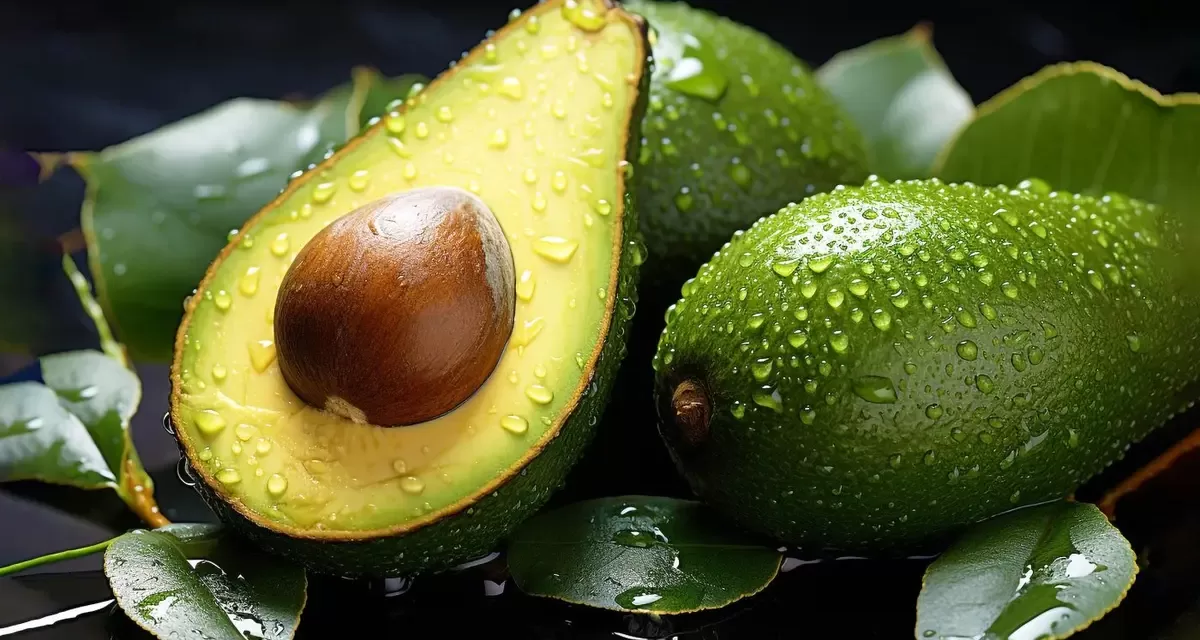Avocados have become a beloved staple in kitchens worldwide, appearing on everything from toast to smoothies, and taking center stage in guacamole at gatherings. Their creamy texture and rich taste have made them a fan favorite, but recent studies suggest that incorporating one avocado into your daily diet might not only satisfy your taste buds, but could also add years to your life. Packed with healthy fats, fiber, and essential vitamins, avocados are being hailed for their health benefits—yet, like many popular foods, they come with their share of controversy.
The Nutritional Powerhouse
Avocados are more than just a trendy food; they’re a powerhouse of nutrition. Loaded with heart-healthy monounsaturated fats, avocados are great for your cardiovascular system. But that’s just the beginning. These fruits are also rich in Vitamin K, Vitamin E, several B vitamins, and essential minerals like potassium and magnesium. Additionally, avocados provide ample fiber, which aids digestion and promotes satiety, helping to curb cravings.
Investigating the Health Benefits
Kristina Petersen, an associate professor of nutritional sciences, and Penny Kris-Etherton, a retired professor from Penn State University, recently led a study to explore the potential health benefits of eating one avocado per day. The research, published in Current Developments in Nutrition, aimed to determine whether adding this nutrient-dense food to one’s daily routine could improve overall diet quality and, ultimately, life expectancy.
“We wanted to see if regular intake of this food would lead to an increase in diet quality,” said Petersen. Previous studies have shown that avocado eaters tend to have higher diet quality, but this new research aimed to establish a direct cause-and-effect relationship.
Study Design and Findings
The study involved 1,008 participants, divided into two groups. One group continued their normal diet with limited avocado consumption, while the other group added one avocado to their meals every day for 26 weeks. Participants were interviewed regularly to assess their dietary intake, with results evaluated using the Healthy Eating Index, which measures adherence to the Dietary Guidelines for Americans.
The results were striking. The group that added an avocado a day saw significant improvements in their adherence to dietary guidelines, suggesting that avocados may play a role in enhancing diet quality and reducing the risk of chronic diseases like heart disease, diabetes, and kidney disease.
Petersen noted that avocados often replaced less healthy foods, such as those high in refined grains and sodium, further contributing to the improved diet quality.
“By improving people’s adherence to dietary guidelines, we can help to reduce their risk of developing chronic conditions and prolong healthy life expectancy,” Petersen explained.
The Bigger Picture: The Dark Side of Avocados
Despite the health benefits, there are some darker sides to the avocado’s rise in popularity. Honor May Eldridge, a food policy expert, tackles the complexities of avocado consumption in her book The Avocado Debate. According to Eldridge, the avocado has become a symbol of generational conflict, environmental concerns, and social injustices.
In the past three decades, avocados have exploded in popularity, moving from a regional crop to a global commodity. While this has made avocados more accessible, it has also led to significant environmental and social challenges. Eldridge highlights issues such as excessive water use, deforestation, and pesticide use in avocado production, particularly in countries like Mexico, where much of the world’s supply is grown.
“The environmental impacts are real,” Eldridge explains. “The need for land to grow avocados is leading to the destruction of vital habitats, and the social inequalities tied to their production are hard to ignore.”
She also points out the growing influence of the Global North in shaping avocado farming in the Global South, often to the detriment of local communities who face land grabs and inequitable working conditions.
Finding Balance
So, how should we navigate this complex avocado debate? While the health benefits of daily avocado consumption are clear, it’s equally important to consider the environmental and social impacts of its production. The key, according to Eldridge, is awareness and balance.
“We all need to be more knowledgeable about the consequences of our food choices. The debate should move beyond simplistic portrayals and acknowledge the complexities of the food system,” Eldridge suggests.
By understanding the broader implications of avocado production, consumers can make more informed choices that not only benefit their health but also support sustainable and ethical farming practices.
Conclusion
Avocados can indeed enhance diet quality and potentially add years to your life, but it’s crucial to recognize the full picture. From the personal health benefits to the environmental and social challenges, the avocado story is one of both promise and caution. As we enjoy this nutrient-dense fruit, it’s important to strike a balance and make mindful choices about where and how our avocados are sourced.
The full study on the health benefits of avocados was published in Current Developments in Nutrition, and The Avocado Debate offers a deeper dive into the global impact of this ubiquitous fruit.












